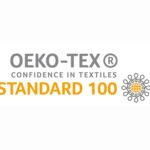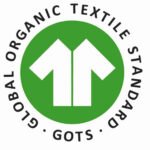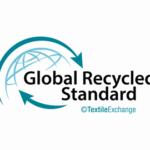custom capes
Elevate Your Brand with Vacodo:
Your Premier Capes Partner

As a leading capes manufacturer, distinguishes itself as the premier choice for discerning businesses seeking unparalleled flexibility, control, and comfort in their products. Our commitment to excellence shines through our meticulous material development process, ensuring superior quality and satisfaction.
We pride ourselves on being more than just a manufacturer; we are partners in your success. Whether you're launching a new business or expanding your brand, we're dedicated to helping you realize your vision. By collaborating closely with clients and companies, we harness their ideas and aspirations to craft authentic and enhanced product lines. Together, we propel brands forward, transforming dreams into tangible success stories. Trust Vacodo to elevate your brand to new heights.
We pride ourselves on being more than just a manufacturer; we are partners in your success. Whether you're launching a new business or expanding your brand, we're dedicated to helping you realize your vision. By collaborating closely with clients and companies, we harness their ideas and aspirations to craft authentic and enhanced product lines. Together, we propel brands forward, transforming dreams into tangible success stories. Trust Vacodo to elevate your brand to new heights.
MATERIALS FOR CUSTOM capes

Fabrics:
Satin:
Offers a luxurious feel and a smooth, shiny surface.
Velvet:
Provides a rich texture and a soft, plush feel.
Brocade:
Adds an elegant touch with intricate patterns and metallic threads.
Cotton Twill:
Offers durability and a matte finish, ideal for everyday wear.
Faux Fur:
Provides warmth and a luxurious look, perfect for winter or fantasy-themed capes.
Trimmings:
Faux Leather:
Adds a bold accent as trim or for embellishments.
Satin Ribbons:
Enhances the closure and adds a decorative element.
Lace:
Offers a delicate, feminine touch for special occasions or themed capes.
Embroidery:
Elevates the design with intricate patterns or logos.
Fringe:
Adds movement and drama, especially for ceremonial or theatrical capes.
Fastenings:
Buttons:
Classic and versatile, available in various sizes and styles.
Snap Fasteners:
Provide a secure closure while being easy to use.
Buckles:
Adds a touch of vintage charm and allows for adjustable fit.
Hook and Eye Closures:
Offers a discreet closure option, ideal for sleek designs.
velcro:
Provides convenience and adjustability, especially for children's capes.
Lining:
Satin:
Offers a luxurious feel and a smooth, comfortable lining.
Cotton:
Provides breathability and softness, suitable for everyday wear.
Silk:
Adds a touch of opulence and feels luxurious against the skin.
Polyester:
Offers durability and easy care, ideal for costume or themed capes.
Fleece:
Adds warmth and coziness, perfect for colder climates or outdoor events.
TYPES OF custom capes

Full-Length Cape
Classic and timeless, extending from the shoulders to the ankles, often with a flowing silhouette.

Half-Length Cape
Provides coverage to the waist or hips, offering a more versatile option for movement.

Bridal Cape
Adds elegance and drama to wedding attire, available in various lengths and styles, such as lace-trimmed or embellished.

Evening Cape
Perfect for formal events, offering sophistication and glamour with options like velvet or satin fabrics and embellishments.

Superhero Capes
Customized to resemble iconic superhero designs or featuring unique colors and symbols for cosplay enthusiasts.

Renaissance Capes
Ideal for historical reenactments or themed events, often featuring rich fabrics, intricate trimmings, and hooded styles.

Cape Coat
Combines the functionality of a coat with the style of a cape, offering warmth and versatility in colder climates.
HOW TO CUSTOMIZE YOUR capes
4 steps to customize your capes

1. Send your inquiry
Tell us your ideas or send product pictures, URLs, design drawings, etc. We’ll confirm with you lingerie styles, colors, sizes, fabrics, accessories, and so forth in detail.
2. Develop lingerie samples
Make the sample and send it to you. You can evaluate the lingerie quality and overall effect. Tell us your suggestions. Then, we modify it.
3. Start mass production
Place an order once you approve the sample. Then, we go to mass production and production follow-up.
4. Carry out QC before shipping
Conduct AQL sampling or one-by-one inspection before your items are shipped to your place as negotiated.
MANUFACTURING PROCESS OF custom capes

Design and Conceptualization:
Client Consultation:
Discuss requirements, preferences, and any specific design elements with the client.
Conceptualization:
Create sketches or digital mock-ups based on client input and design specifications.
Material Selection and Sourcing:
Fabric Selection:
Choose appropriate fabrics based on the design, purpose, and client preferences.
Trim and Accessories:
Select trims, closures, linings, and any additional accessories required for the cape design.
Pattern Making:
Pattern Development:
Draft patterns based on the finalized design and measurements.
Prototype Creation:
Produce a prototype or sample cape to assess fit, functionality, and design accuracy.
Cutting and Preparation:
Fabric Cutting:
Use the patterns to cut the chosen fabrics accurately, ensuring precise measurements and alignment.
Trim Cutting:
Cut trims, linings, and any other materials according to the required specifications.
Assembly and Construction:
Sewing:
Assemble the cape components using industrial sewing machines, following the designed pattern and construction techniques.
Trim Attachment:
Add trims, closures, and any embellishments according to the design specifications.
Quality Control:
Inspection:
Conduct thorough quality checks at various stages of production to ensure consistency, accuracy, and adherence to standards.
Fit Testing:
Verify the fit and comfort of the cape by trying it on models or mannequins, making any necessary adjustments.
Finishing Touches:
Pressing and Ironing:
Steam or press the cape to remove wrinkles and creases, ensuring a polished appearance.
Labeling and Packaging:
Attach custom labels or tags with branding information and package the capes securely for shipment or distribution.
Final Inspection and Delivery:
Final Quality Check:
Perform a final inspection to confirm the cape meets all requirements and standards.
Delivery:
Ship the completed custom capes to the client or distribute them through the appropriate channels.
INSPECTION OF CUSTOM CAPES

Quality Criteria:
Visual Standards:
Establish clear criteria for visual appearance, such as cleanliness, symmetry, and alignment of design elements.
Functional Standards:
Define performance requirements, including durability, comfort, and ease of use.
Client Specifications:
Refer to the client's requirements and approved samples to verify that the capes meet their expectations.
Documentation and Reporting:
Record Keeping:
Maintain detailed records of inspection results, including any defects found and corrective actions taken.
Report Generation:
Prepare inspection reports summarizing findings, highlighting any issues, and recommending solutions.
Communication:
Communicate inspection results to relevant stakeholders, including production teams, quality assurance personnel, and clients.
Corrective Actions:
Defect Rectification:
Address any identified defects promptly through rework, repairs, or replacements.
Process Improvement:
Analyze inspection findings to identify root causes of defects and implement corrective measures to prevent recurrence.
Client Feedback:
Seek feedback from clients on inspection results and take necessary actions to address their concerns or preferences.
Pre-Production Inspection:
Material Inspection:
Check all materials (fabric, trimmings, accessories) against specifications to ensure they meet quality standards.
Pattern Review:
Verify that the patterns match the approved design and dimensions.
During Production Inspection:
Random Sampling:
Select random capes from the production line for inspection.
Stitching and Seam Inspection:
Check for even stitching, straight seams, and secure attachments of trims and closures.
Fabric Quality Check:
Examine the fabric for flaws, irregularities, or inconsistencies in color and texture.
Measurement Verification:
Ensure that the dimensions of the capes align with the specified measurements.
Post-Production Inspection:
Comprehensive Evaluation:
Inspect each finished cape individually for overall quality and accuracy.
Fit Testing:
Try on the capes or use mannequins to assess the fit, drape, and comfort.
Finishing Inspection:
Check for loose threads, wrinkles, or any other imperfections that may affect the appearance or functionality.
Functionality Testing:
Test closures, zippers, and other components to ensure they operate smoothly and securely.
CERTIFICATIONS

OEKO-TEX Standard 100
This certification ensures that textiles and fabrics used in bras meet strict human-ecological requirements and are free from harmful substances.

ISO 9001
ISO 9001 certification indicates that a manufacturer has implemented a quality management system to consistently provide products that meet customer and regulatory requirements.

ISO 14001
ISO 14001 certification demonstrates that a manufacturer has implemented an environmental management system to minimize the environmental impact of its operations, including the production of bras.

BSCI
BSCI certification verifies that a manufacturer adheres to ethical standards and social compliance requirements, including labor rights, health, safety, and environmental protection.

GOTS
GOTS certification ensures that bras made from organic fibers meet stringent environmental and social criteria throughout the entire production process, from harvesting to manufacturing.

GRS
GRS (Global Recycling Standard) is an international recycled materials standard designed to ensure that recycled materials are traceable, recyclable and sustainable throughout their supply chain. The standard applies to any product containing at least 20% recycled materials, including textiles, plastics, paper, etc.

CE
CE marking indicates compliance with European Union directives and regulations, ensuring that bras meet health, safety, and environmental protection standards for sale in the EU market.

REACH
REACH compliance ensures that bras meet regulations for the safe use and handling of chemicals in the production process.

